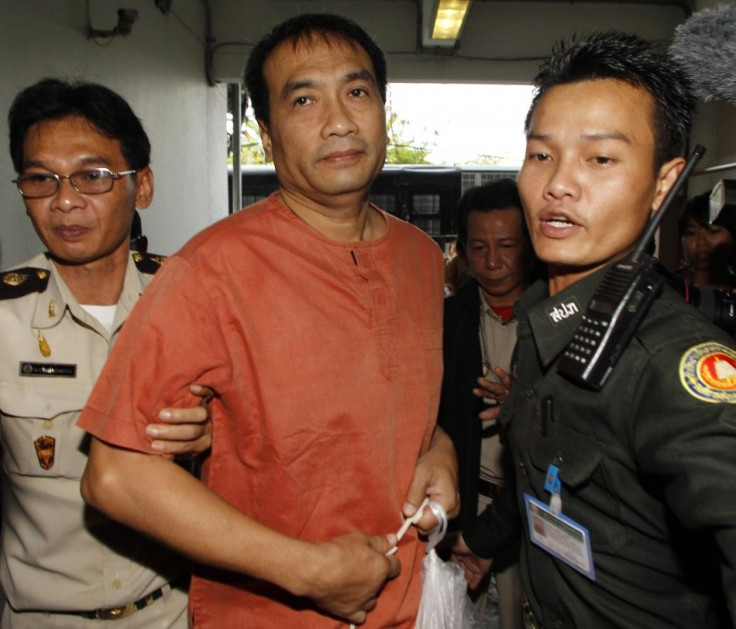American Joe Gordon Gets 2.5 Years for Blogging about Thai King

An American named Joe Gordon was sentenced to two-and-a-half years in prison by a court in Thailand on Thursday for defaming the country's king and royal family on his blog.
Gordon, who was born in Thailand and is also named Lerpong Wichaikhammat, is a used car salesman in Colorado who posted translations of the banned biography of King Bhumibol Adulyadej on his blog. The book, The King Never Smiles by Paul Handley, is banned in Thailand for insulting King Bhumibol.
While he made the comments from his home in the U.S., he was still culpable under Thailand's strict Computer Crime Act of 2007. So, when Gordon returned to Thailand for medical treatment last spring, he was taken into custody.
“I am an American citizen, and what happened was in America, Gordon told the court.
Gordon pled guilty to insulting the king and in doing so got his sentence reduced from five years in jail.
Penalties for the crime of lese majeste often come to 15 or more years in prison; Thai authorities don't take slander lightly.
In November, a court sentenced a 61-year-old cancer-stricken grandfather to 20 years in prison for sending text messages disparaging the queen to a secretary of then-Prime Minister Abhisit Vejjajiva, according to The Associated Press. The man, Amphon Tangnoppakul, denied the charge and claimed that he doesn't know how text messages work.
“The severity of penalties being meted out for lese majeste offenses in Thailand is shocking,” stated Brad Adams, Asia director at Human Rights Watch.
“The new government seems to be responding to questions about its loyalty to the monarchy by filing countless lese majeste charges.”
The U.S. has yet to officially comment on Gordon's sentencing, but last month State Department spokeswoman for East Asia, Darragh Paradiso, said that the U.S., which is a key ally of Thailand, is “troubled by recent prosecutions and court decisions that are not consistent with international standards of freedom of expression.”
We continue to have full support for the Thai monarchy, added Elizabeth Pratt, consul general with the U.S. Embassy in Bangkok, but will also continue to support the right to freedom of expression, which is an international human right.
A writer for the Thai political blog Prachatai wrote a letter to the U.S. Ambassador to Thailand, Kristie Kenney, prior to the sentencing. A member of Kenney's staff replied that while the embassy was doing its best to make Gordon comfortable, he was subject to Thai law as soon as he stepped into the country.
According to Prachatai, the letter reads:
While overseas, all private foreign nationals are subject to the laws of the country where they are located. Many of these laws are vastly different from U.S. laws. As you know, the Thai Department of Special Investigations accused Mr. Gordon, a private U.S. citizen, of lèse-majesté, specifically violating Section 112 of the Thai Criminal Code and Section 14(3)(5) of the Thai Computer Crimes Act.
Since Mr Gordon’s arrest in May, Ambassador Kenney and other Embassy officials have raised Mr. Gordon’s situation with the Thai government officials many times, urging fair treatment and respect for his rights to freedom of expression. Embassy officials visit Mr. Gordon in jail regularly and attended his court hearings, most recently on October 10. We remain committed to providing Mr. Gordon all possible assistance allowed a private citizen under international convention.
Sincerely,
Chief of American Citizen Services Unit
Nonetheless, the question of whether or not a man can be convicted in one country for a crime committed in another will surely be a topic of debate going forward, and the U.S. is likely to push Thailand, if only softly at first. In the meantime, Gordon will have to wait and see what happens.
© Copyright IBTimes 2024. All rights reserved.





















